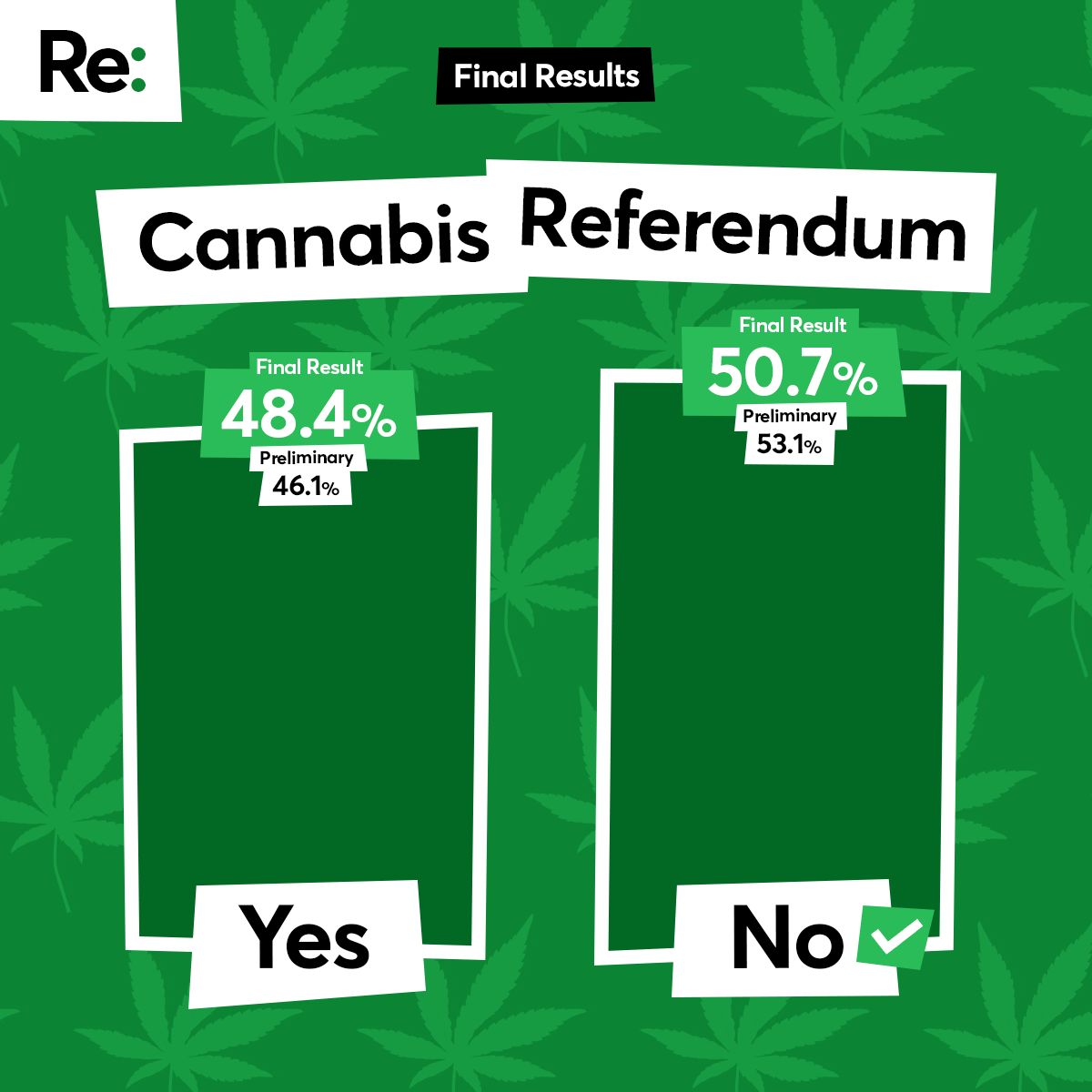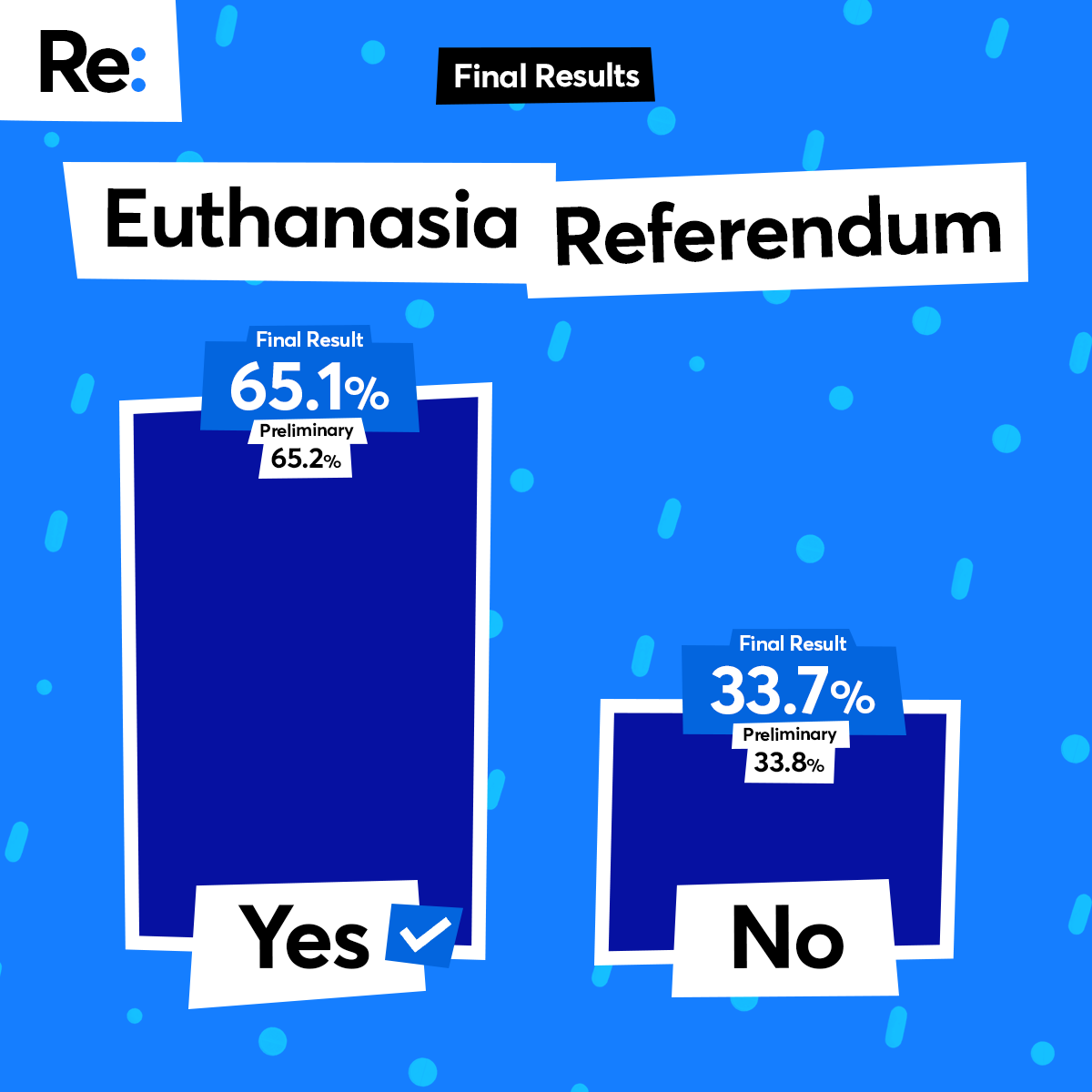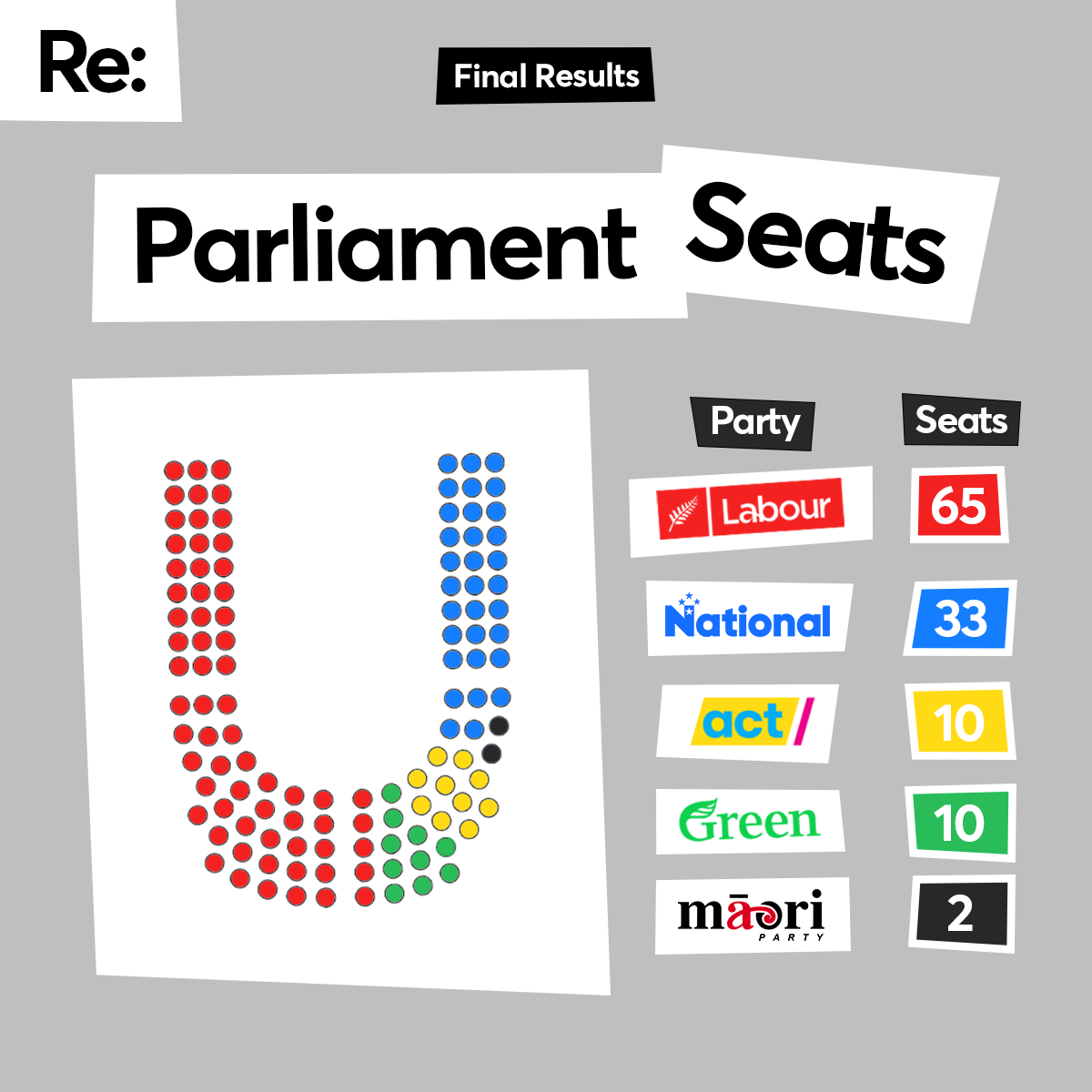The special votes have been counted and the final results of the referendums and New Zealand’s 2020 general election have been released.
It’s still a no for cannabis and a yes for euthanasia.
Labour has come out even stronger, with one more seat than what it looked like on election night. The Māori Party has also gained another seat, bringing them to a total of two seats.
National is two seats lower than what the preliminary votes showed.
Chlöe Swarbrick has kept the seat of Auckland Central and Rawiri Waititi has kept the seat of Waiariki.
Special votes
In total, 2,919,086 people voted in the election. 17 percent of those (504,625) were special votes.
The preliminary results of the election were released on election night October 17, and the preliminary results for the referendums were announced last Friday October 30.
Special votes are those made by people who were physically outside their electorate when they voted - either because they live overseas, or because they were in a different part of New Zealand than their electorate on the day they voted.
It also includes people who weren’t enrolled ahead of time, and so enrolled on election day.
Because these votes were made outside of people’s normal electorates, they take longer to count and double-check.
Cannabis referendum: no wins

The special votes did narrow the gap in the cannabis referendum, bumping up the yes vote by 2.3 percent, and lowering the no vote by 2.4 percent.
But it wasn’t enough to change the overall result, with the no vote winning on 50.7% of the vote, against the yes vote getting 48.4%.
The Electoral Commission says it is unlikely a recount would happen for the cannabis referendum. Even though the yes and no vote seem very close, there are 67,662 votes between them, which is far higher than the margin usually considered for a recount. Recounts are usually only done when the margin is a few hundred.

The final results of the cannabis referendum. Source: Electoral Commission.
The Cannabis Legalisation and Control Bill proposed that people over the age of 20 would be able to:
- Buy up to 14 grams of cannabis from licensed shops
- Grow two plants, with a maximum number of four plants per household
- Share up to 14 grams of cannabis with someone who is also over the age of 20
- Consume cannabis at home or on a licensed premise, but not in public
But these results mean recreational cannabis use does not become legal in New Zealand.
You can read more about the Bill that was proposed here.
Euthanasia referendum: yes wins

The special votes didn’t make much of a difference to the euthanasia referendum, only changing the results by 0.1 percent.
The yes vote has officially won, with 65.1 percent support.

The final results of the euthanasia referendum. Source: Electoral Commission.
That means in 12 months’ time the End of Life Choice Act 2019 will come into law, making euthanasia legal in New Zealand.
The euthanasia question was a binding referendum, meaning the government has to enact the outcome - if over 50 percent of voters voted yes then the act becomes law, if over 50 percent of voters voted no then it would not become law.
The Act was passed by Parliament last year, but only comes into force if more than 50 percent of voters in the referendum voted yes.
It allows people who are terminally ill and likely to die within six months to request assisted dying.
Assisted dying means a patient can either:
- Request for a doctor or nurse practitioner to hand them medication that they then take to end their own life.
- Request for a doctor or nurse practitioner to end their life (eg the doctor administers the drugs that end the patient’s life).
To be eligible a person must meet all of these criteria:
- Be over 18 years old
- Have a terminal illness that’s likely to kill them in the next six months
- Be experiencing unbearable suffering and a significant decline in physical capability
- Be able to make an informed decision
- Be a citizen or permanent resident
You can read more about the details of the Act here.
The government

Special votes boosted Labour and the Māori Party, while taking away seats from National.
The final results are:
- Labour has 65 seats (one more than the preliminary results showed)
- National has 33 seats (two less than the preliminary results)
- Māori Party has 2 seats (one more than the preliminary results)
- ACT and the Greens both have 10 seats (unchanged from the preliminary results)
The special votes resulted in three electorates having their winner changed:
- Maungakiekie: the preliminary results showed National candidate Denise Lee had won, but the full results show Labour’s Priyanca Radhakrishnan won by 635 votes
- Northland: the preliminary results showed National’s Matt King in the lead, but the full results mean Willow-Jean Prime was won by 163 votes.
- Whangārei: preliminary results had National’s Shane Reti in the lead, but the full results have put Labour’s Emily Henderson as the winner by 431 votes
Chlöe Swarbrick has kept the seat of Auckland Central and Rawiri Waititi has kept the seat of Waiariki.
The breakdown of how many people voted
This election saw a huge jump in advance voting, with 68 percent of votes made in advance - last election it was 47 percent.
We also had the highest enrolment rate (94.1 percent) since 2008.
There was also the highest voter turnout since 1999, with 82.2 percent of enrolled people turning out to vote. In 2017 voter turnout was 79.8 percent.